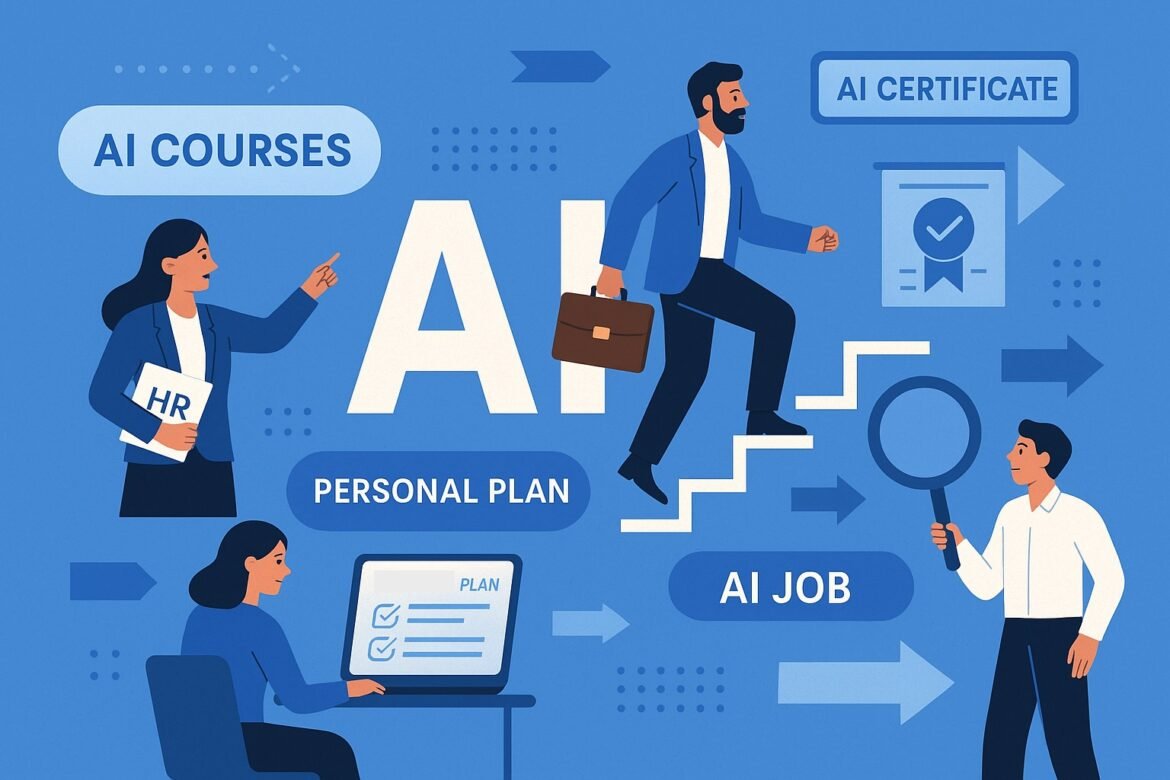As AI moves from pilot projects to everyday workflows, HR leaders are racing to close a growing skills gap across their organizations. Recent survey data shows employee use of AI jumped from 8 percent in 2023 to 35 percent in 2024, yet many workers say they have not received enough training to use these tools with confidence.
That mismatch is pushing companies to look for structured, role based learning. One platform drawing attention is Complete AI Training, which offers practical AI courses and AI certifications designed for specific job functions, from HR and finance to sales, operations, and tech. HR teams say the appeal is simple, clear paths that map AI skills to day to day work.
“The biggest challenge right now isn’t technology, it’s confidence,” said Jeroen Erne, founder of Complete AI Training. “People want to use AI, they just need to see how it fits their role, step by step.”
What HR teams are asking for
- Role based programs, so an HR generalist does not wade through data engineering material, and a sales manager gets lead scoring and pipeline use cases, easily assigned from AI Courses by Job
- Credentials employees can show, with verifiable AI certifications
- Content that stays current, because tools and best practices change quickly
Complete AI Training updates content weekly, and lets companies assign learning by department so each team gets relevant material. Leaders can point employees to AI Courses by Job or start everyone with a Personal AI Learning Plan that gives step by step guidance.
Why this matters for retention
Training is part of the employee experience now. Research widely cited by HR leaders links upskilling to higher engagement and lower turnover. When teams understand how to use AI, they report less anxiety about automation and more interest in testing new ideas.
“Empowering employees with AI knowledge is one of the most reliable ways to future proof their careers and the company,” Erne said. “Once people see practical wins in their own workflow, momentum builds.”
Inside the curriculum
The platform lists more than 700 on demand AI courses across functions. Common HR use cases include résumé screening, interview scheduling, policy drafting, engagement analysis, and skills mapping. Finance teams focus on variance analysis and reporting, marketing teams on content generation and campaign insights, sales teams on lead scoring and call prep. Programs culminate in AI certifications employees can add to internal profiles or résumés.
The bigger picture
AI adoption is spreading across departments, not just IT. HR leaders say their goal for 2025 is company wide literacy, not specialist knowledge in one corner of the business. That means consistent frameworks, shared language, and measurable progress by team. Many start with a Personal AI Learning Plan, then assign role specific tracks from AI Courses by Job, and deepen skills with targeted AI courses.
For program details and enterprise options, visit Complete AI Training at https://completeaitraining.com/. To see role specific tracks, explore AI Courses by Job, earn credentials through All AI Certifications, or get immediate guidance with a Personal AI Learning Plan.



